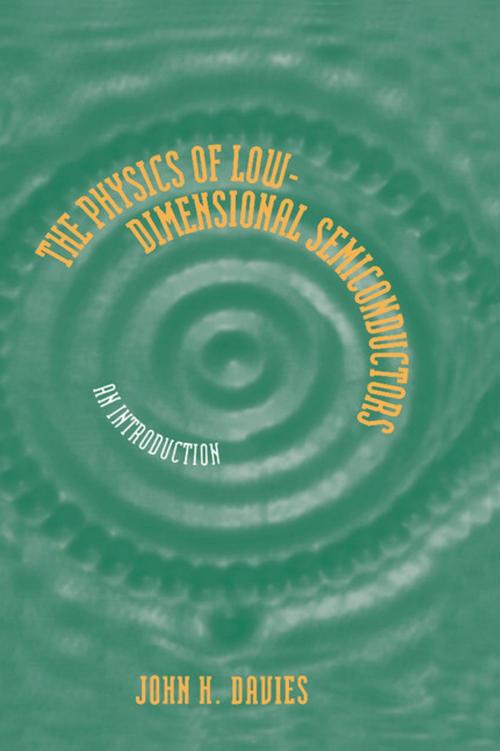The Physics of Low-dimensional Semiconductors
An Introduction
Nonfiction, Science & Nature, Technology, Electronics, Optoelectronics, Superconductors & Superconductivity| Author: | John H. Davies | ISBN: | 9781107385078 |
| Publisher: | Cambridge University Press | Publication: | December 13, 1997 |
| Imprint: | Cambridge University Press | Language: | English |
| Author: | John H. Davies |
| ISBN: | 9781107385078 |
| Publisher: | Cambridge University Press |
| Publication: | December 13, 1997 |
| Imprint: | Cambridge University Press |
| Language: | English |
The composition of modern semiconductor heterostructures can be controlled precisely on the atomic scale to create low-dimensional systems. These systems have revolutionised semiconductor physics, and their impact on technology, particularly for semiconductor lasers and ultrafast transistors, is widespread and burgeoning. This book provides an introduction to the general principles that underlie low-dimensional semiconductors. As far as possible, simple physical explanations are used, with reference to examples from actual devices. The author shows how, beginning with fundamental results from quantum mechanics and solid-state physics, a formalism can be developed that describes the properties of low-dimensional semiconductor systems. Among numerous examples, two key systems are studied in detail: the two-dimensional electron gas, employed in field-effect transistors, and the quantum well, whose optical properties find application in lasers and other opto-electronic devices. The book includes many exercises and will be invaluable to undergraduate and first-year graduate physics or electrical engineering students taking courses in low-dimensional systems or heterostructure device physics.
The composition of modern semiconductor heterostructures can be controlled precisely on the atomic scale to create low-dimensional systems. These systems have revolutionised semiconductor physics, and their impact on technology, particularly for semiconductor lasers and ultrafast transistors, is widespread and burgeoning. This book provides an introduction to the general principles that underlie low-dimensional semiconductors. As far as possible, simple physical explanations are used, with reference to examples from actual devices. The author shows how, beginning with fundamental results from quantum mechanics and solid-state physics, a formalism can be developed that describes the properties of low-dimensional semiconductor systems. Among numerous examples, two key systems are studied in detail: the two-dimensional electron gas, employed in field-effect transistors, and the quantum well, whose optical properties find application in lasers and other opto-electronic devices. The book includes many exercises and will be invaluable to undergraduate and first-year graduate physics or electrical engineering students taking courses in low-dimensional systems or heterostructure device physics.















